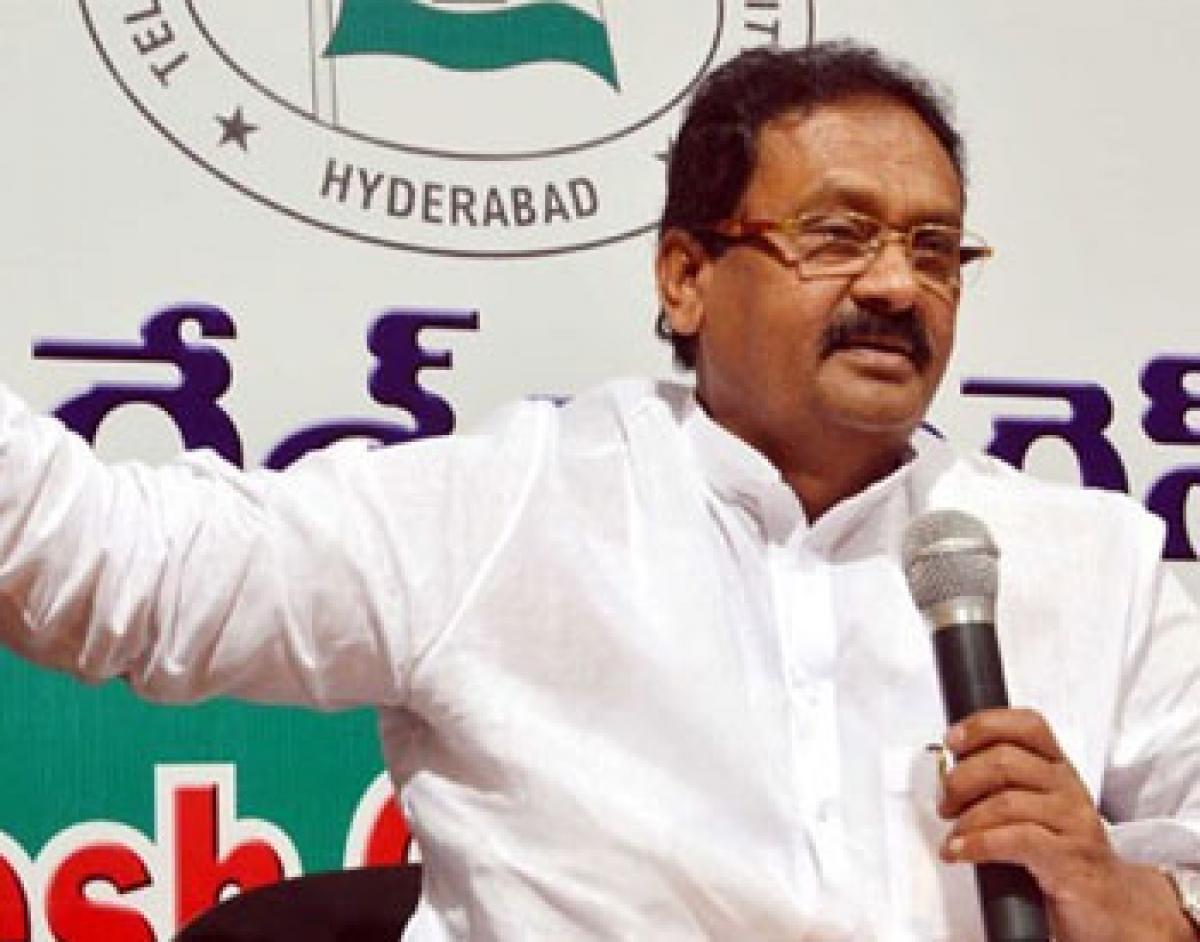Live
- Rajadhiraaj: Love. Life. Leela
- Students immerse in nature in Chilkur forest
- Sri Aurobindo’s vision: Bridging the gap for holistic human evolution
- Sri Radha Govinda Ratha Yatra conducted
- A feast of music, dance and drama
- Mohan Babu denies absconding amid legal controversy
- Swift City to boost industrial growth in Bengaluru
- Allu Arjun walks out free after spending night in jail
- Congress harbours no grudge against any actor: TPCC chief
- Allu Arjun meets Upendra after release from prison, wishes for his ‘UI’ film
Just In
Study Muslims backwardness: Congress to Sudhir Commission


Leader of Opposition in Telangana Legislative Council Mohammed Ali Shabbir on Saturday urged the Sudhir Commission to gather comprehensive data from all available resources to prove backwardness of Muslims in Telangana to facilitate providing 12 per cent reservation, as promised by the TRS in its election manifesto.
.jpg) Hyderabad: Leader of Opposition in Telangana Legislative Council Mohammed Ali Shabbir on Saturday urged the Sudhir Commission to gather comprehensive data from all available resources to prove backwardness of Muslims in Telangana to facilitate providing 12 per cent reservation, as promised by the TRS in its election manifesto.
Hyderabad: Leader of Opposition in Telangana Legislative Council Mohammed Ali Shabbir on Saturday urged the Sudhir Commission to gather comprehensive data from all available resources to prove backwardness of Muslims in Telangana to facilitate providing 12 per cent reservation, as promised by the TRS in its election manifesto.
Shabbir Ali, along with deputy CLP leader Ponguleti Sudhakar Reddy, Whip in Council M S Prabhakar, Rajya Sabha MP M A Khan, TPCC secretary Mohammed Javeed Ahmed and other leaders, submitted a representation to the commission during its public hearing held here on Saturday.
Shabbir Ali said the commission should rely on latest statistics for its study. He pointed out that similar exercises were carried out in the past to study the socio-economic and educational conditions of Muslims.
“The commission must visit slums, markets and government schools in the city and other parts of the State, to get first-hand information on the socio-economic and educational status of Muslims.
A poor vendor is forced to do business by taking negligible sums on interest rates as high as 10 per cent on a daily basis. Muslims living in several districts have no access to basic amenities. The commission must rely more on field visits,” he advised.
Referring to ‘Minority Report’ presented by Sardar Vallabhbhai Patel in the then Constituent Assembly on August 18, 1947, he said reservation was proposed for Muslims, Christians and Scheduled Castes across the country.
However, the recommendations were amended later by removing Muslims and Christians from the list of beneficiaries. He also listed out other measures taken by various governments to improve the conditions of Muslims. However, he said that the condition remained the same.
Quoting Census 2011 data, Shabbir Ali said there was no uniformity in distribution of population at district and mandal levels. Therefore, the commission should not adopt a generic approach to study the socio-economic and educational condition of Muslims.
Their conditions vary from district to district and mandal to mandal. “The implementation of 4 per cent reservation, fee reimbursement, scholarship and other schemes from 2004-2014 has changed the lives of a few thousand Muslims in Telangana (and also Andhra Pradesh) during the decade.
However, the schemes have benefited only a sizeable number of Muslims. Therefore, based on minor improvement in the figures like representation of Muslims in educational institutions, it should not be assumed that 44,64,699 Muslims of Telangana are on the growth path. The commission should be cautious in dealing with the statistics on education and jobs from 2004-2014,” he pointed out.

© 2024 Hyderabad Media House Limited/The Hans India. All rights reserved. Powered by hocalwire.com






